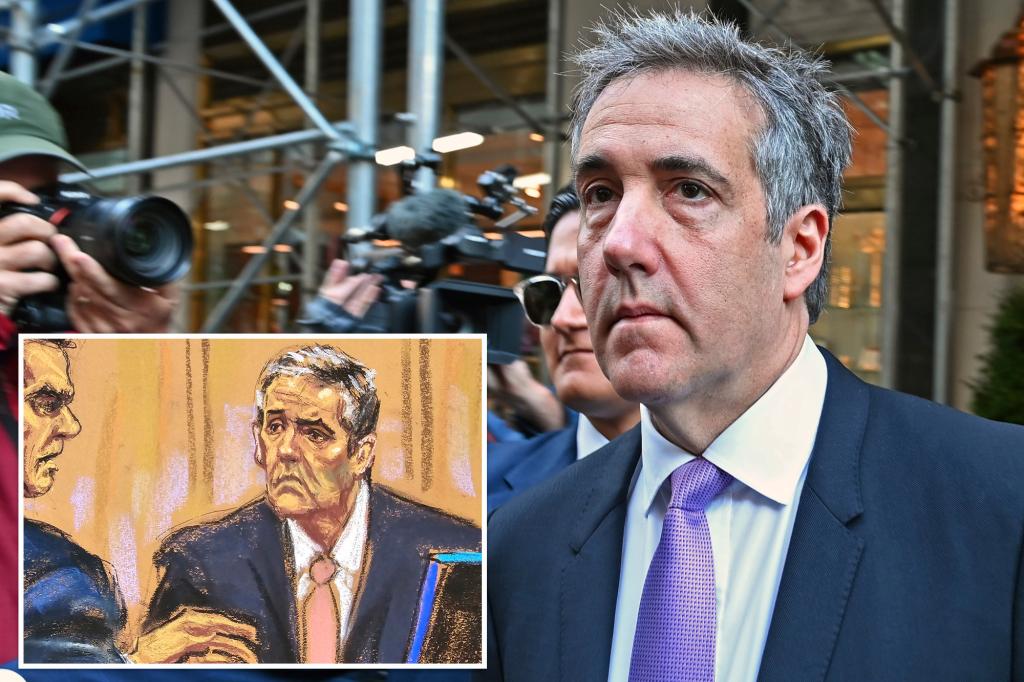In a Manhattan Supreme Court, Michael Cohen, Donald Trump’s ex-personal attorney, confessed to stealing $60,000 from his ex-boss as a form of “self-help” during Trump’s hush money trial. Cohen made this admission in response to being questioned by Trump’s defense attorney about a scheme to rig a popularity poll in Trump’s favor. Cohen had made a $130,000 payment to porn star Stormy Daniels to keep a sex scandal quiet before the 2016 election, which led to his conviction for fudging company records. At a key meeting post-election, Trump Tower, Cohen falsely claimed ownership of $50,000 to a tech firm for aiding Trump in climbing the rankings of a business titan poll. However, the firm was only paid $20,000 in cash in a brown paper bag after Trump refused to pay the full amount.
During his testimony, Cohen explained that his actions were in response to Trump reducing his bonus from $150,000 to $50,000. Trump refused to pay the full amount to the tech firm, Red Finch, since he did not achieve the rank he wanted in the famous businessman poll. Cohen’s theft from the Trump Organization was presented as a practice called “grossing up” to account for taxes he would owe if he declared it as income instead of a tax-free reimbursement. Trump appeared alert during Cohen’s testimony, as defense lawyers questioned Cohen’s credibility citing his past convictions for lying under oath. Cohen admitted to making around $4.4 million from books and podcasts after his release from prison in 2020.
Cohen remained convinced that he spoke with Trump at least 20 times about the hush money payment to Daniels in 2016, only agreeing to make the payment because Trump promised to reimburse him. Trump’s lawyers moved for the case to be thrown out after the conclusion of Cohen’s testimony due to his history of lying. Justice Juan Merchan appeared skeptical of this move, suggesting that the jury of “12 New Yorkers” should decide which parts of Cohen’s testimony to believe. A recorded phone call was also presented, showing Cohen discussing the hush money payment with Daniels’ lawyer in October 2017, indicating Trump’s reluctance towards the payment.
Overall, Cohen’s testimony shed light on the theft from the Trump Organization as a form of retaliation against Trump’s reduction of his bonus. Cohen’s admission of stealing $60,000, along with his involvement in fudging company records to conceal hush money payments, provided insight into the nature of his relationship with Trump. The trial underscored Cohen’s attempts to protect Trump’s interests, even at the expense of engaging in fraudulent activities. By discussing the details of the payment to Stormy Daniels and the subsequent reimbursement, Cohen revealed the intricate dynamics of his role as Trump’s fixer-turned-foe. The court proceedings unraveled a narrative of loyalty, deception, and betrayal within the inner circle of one of America’s most controversial presidents.


